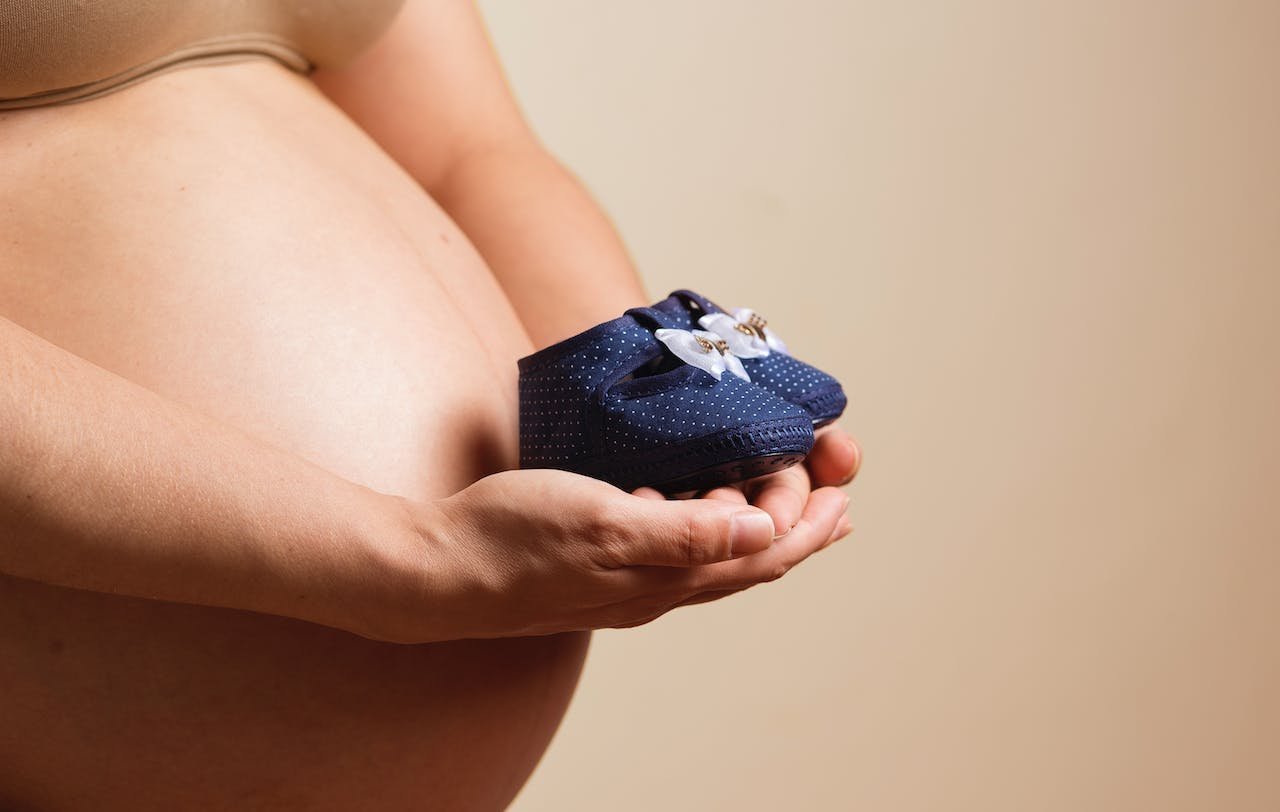The definitive dad guide to the third trimester of pregnancy.
Overview
Foetal Development
Embark on a journey to understand the remarkable changes your baby undergoes during the third trimester, from brain growth to lung development.
Navigating Emotional Ups and Downs
Support your partner as she grapples with the emotional rollercoaster of the third trimester, offering empathy and understanding.
Embracing the Nesting Instinct:
Assist your partner in creating a cozy and welcoming nursery, transforming your home into a haven for your little one.
Preparing for Labour and Delivery
Equip yourself with the knowledge and skills to be an active and supportive partner during labor and delivery.
Third Trimester Foetal Development
As your partner enters the third trimester of her pregnancy, your baby’s development accelerates at an astonishing pace. From week 28 to week 40, your little one undergoes a remarkable transformation, preparing for their grand entrance into the world. As a dad-to-be, understanding these developmental milestones will not only deepen your connection with your baby but also equip you with valuable insights as you anticipate their arrival.
Brain Growth
During the third trimester, your baby’s brain undergoes a period of exponential growth. Millions of new neurons are formed, creating intricate connections that lay the foundation for future cognitive abilities, such as learning, memory, and problem-solving. This remarkable development is fueled by an increased supply of nutrients from the placenta, ensuring that your baby’s brain receives the essential building blocks for its growth and development.
Lungs Unfurling
As the third trimester progresses, your baby’s lungs continue to mature, preparing them for their first breath outside the womb. The tiny air sacs, known as alveoli, increase in number and surface area, allowing for efficient gas exchange. Your baby also practices breathing movements, simulating the rhythmic expansion and contraction of the lungs that will be essential for life outside the womb.
Fine-Tuning the Senses
Your baby’s senses are also undergoing significant development during the third trimester. Their eyes, once protected by eyelids fused shut, begin to open, allowing them to perceive light and shadows. Their ears, now fully formed, can detect a wide range of sounds, from your voice to music to the outside world. Their sense of touch becomes more sensitive, enabling them to respond to tactile stimulation on your partner’s abdomen.
Tips for Dads-to-Be
As a father-to-be, you can actively participate in your baby’s development during the third trimester:
- Talk to your baby: Your baby can hear your voice from inside the womb, so talk to them often. Read to them, sing them songs, and share your day with them.
- Play music for your baby: Studies have shown that babies can respond to music in the womb. Create a calming environment by playing soothing tunes or your favorite music.
- Gently massage your partner’s abdomen: Massaging your partner’s abdomen can help to soothe your baby and encourage them to move.
- Attend prenatal appointments together: Attending prenatal appointments with your partner is a great way to learn more about your baby’s development and to ask questions about your baby’s movements.
- Read books about pregnancy and fetal development: There are many great books available that can help you to learn more about your baby’s development and to feel more connected to them.

Navigating Emotional Ups and Downs
As your partner enters the third trimester of her pregnancy, you might notice a shift in her emotional state. Mood swings, anxiety, and irritability are common experiences during this time, as the surge of hormones and the anticipation of childbirth can take a toll on her emotional well-being. As a father-to-be, understanding these emotional changes and providing unwavering support is crucial for navigating this rollercoaster of emotions.
Understanding the Hormonal Rollercoaster
During pregnancy, your partner’s body undergoes a symphony of hormonal changes, primarily orchestrated by estrogen and progesterone. These hormones work in tandem to support your baby’s growth and development, prepare your partner’s body for childbirth, and maintain a healthy pregnancy. However, these hormonal fluctuations can also significantly impact your partner’s mood and emotional state.
Recognizing Common Emotional Changes
Here are some common emotional changes you might observe in your partner during the third trimester:
- Mood Swings: Your partner might experience sudden and unpredictable shifts in mood, ranging from moments of joy and excitement to feelings of sadness, anxiety, or irritability.
- Anxiety and Worry: The anticipation of childbirth, coupled with hormonal fluctuations, can trigger anxiety and worry about the baby’s well-being, labor and delivery, and the responsibilities of parenthood.
- Irritability and Sensitivity to Stress: Hormonal changes and the physical demands of pregnancy can make your partner more susceptible to stress and irritability. Everyday situations might seem overwhelming, leading to outbursts of frustration or impatience.
Supporting Your Partner Emotionally
As a father-to-be, your understanding, empathy, and unwavering support are invaluable during this time of emotional ups and downs. Here are some ways to help your partner navigate these challenges:
- Be Empathetic and Understanding: Acknowledge her emotions and provide a listening ear. Validate her feelings and reassure her that these hormonal changes are a normal part of pregnancy.
- Encourage Communication: Encourage open and honest communication about her feelings, fears, and concerns. Listen attentively without judgment and offer your support in addressing her worries.
- Promote Relaxation and Stress Management: Help your partner find healthy ways to manage stress and promote relaxation. Encourage activities like yoga, meditation, or spending time in nature.
- Share Household Responsibilities: Lighten your partner’s load by taking on household chores, errands, or preparing meals. This will give her more time to rest and focus on her well-being.
- Seek Professional Help: If your partner’s emotional state significantly impacts her daily life or her ability to cope, encourage her to seek professional help. A therapist can provide guidance and support in managing anxiety, depression, or other emotional challenges.
Remember, pregnancy is a journey of shared experiences and responsibilities. By being an active and supportive partner, you can help your partner navigate this emotional rollercoaster with ease and strengthen your bond as a growing family.
Third Trimester Nesting Instinct
As your partner enters the third trimester of her pregnancy, you might notice a sudden surge of energy and enthusiasm to prepare your home for your little one’s arrival. This instinctive urge to create a cozy and welcoming nest for your baby is known as the ‘nesting instinct’ and is a common experience among pregnant women. As a father-to-be, understanding this instinct and actively participating in the transformation of your home can strengthen your bond with your partner and bring a sense of shared purpose and excitement.
Decoding the Nesting Instinct
The nesting instinct is a surge of hormones, particularly estrogen, that triggers a natural desire to organize, clean, and prepare the home for the baby’s arrival. This instinct is believed to stem from the primal need to create a safe and nurturing environment for the newborn.
Signs of the Nesting Instinct
Here are some common signs that your partner might be experiencing the nesting instinct:
- A sudden burst of energy and motivation: Your partner might feel an urge to tackle household projects, rearrange furniture, and declutter the home with newfound enthusiasm.
- Increased focus on the nursery: She might spend hours decorating the nursery, choosing furniture, selecting baby clothes, and organizing baby essentials.
- A desire for perfection: The nesting instinct can also manifest as a heightened sense of cleanliness and organization. Your partner might feel compelled to deep clean, declutter, and rearrange every corner of the house.
Supporting Your Partner’s Nesting Instinct
As a father-to-be, your support and encouragement are crucial during this time. Here are some ways to help your partner embrace the nesting instinct:
- Be an active participant: Get involved in the nursery preparations, offer your opinion on décor choices, and help with DIY projects.
- Show appreciation for her efforts: Acknowledge her hard work and dedication, expressing gratitude for her efforts in creating a welcoming home for the baby.
- Be patient and understanding: Understand that the nesting instinct can sometimes lead to mood swings or changes in priorities. Be patient and supportive, offering a listening ear and words of encouragement.
- Make it a shared project: Transform the preparation of your home into a fun and shared experience. Engage in activities together, turn cleaning into a game, and make it a bonding experience.

Tips for Creating a Cozy and Welcoming Nursery
Here are some tips for creating a cozy and welcoming nursery for your little one:
- Choose a calming color scheme: Opt for soothing colors that promote relaxation, such as soft pastels, natural tones, or earthy shades.
- Create a designated changing area: Set up a changing station with all the necessary supplies, including diapers, wipes, changing pads, and diaper rash cream.
- Invest in comfortable furniture: Choose a comfortable rocking chair or accent chairs for feeding and soothing the baby.
- Incorporate soft lighting: Use dimmers or soft lighting to create a calming ambiance.
- Add personal touches: Add personal touches like framed ultrasound images, baby name signs, or handmade decorations to make the nursery feel special.
Remember, the nesting instinct is a beautiful and natural part of pregnancy. By understanding, supporting, and actively participating in this process, you can create a warm and welcoming haven for your little one and strengthen your bond as a growing family.
Preparing for Labor and Delivery
As the due date approaches, anticipation and excitement mingle with a touch of nervousness. Labor and delivery, the grand finale of your partner’s pregnancy, is a momentous occasion that marks the beginning of your journey as a father. While it’s natural to feel a bit anxious, preparing yourself with knowledge and support can help you navigate this special event with confidence and composure.
Understanding the Signs of Labor
Knowing the signs of labor will help you stay informed and prepare for your partner’s journey. Here are some common signs that labor is approaching:
- Regular contractions: Contractions are the rhythmic tightening of the uterus, signaling the start of labor. They are initially mild and irregular, becoming stronger, closer together, and more frequent as labor progresses.
- Water breaking: The rupture of the amniotic sac, releasing a clear or slightly pink fluid, is a definite sign that labor is imminent.
- Bloody show: A small discharge of blood mixed with mucus from the cervix is another sign that labor is nearing.
- Loss of mucus plug: A thick, sticky mucous plug seals the cervix during pregnancy. Its loss indicates that the cervix is softening and preparing for labor.
Packing Your Hospital Bag
Packing your hospital bag Labor is crucial to ensure you have everything you need for a comfortable and well-prepared stay. Do check out our detailed article on the Hospital Maternity Bag Checklist.

Supporting Your Partner During Labor and Delivery
Your role as a dad to be during labor and delivery is crucial in providing emotional support, physical comfort, and advocacy for your partner. Here are some ways to support her:
- Be a reassuring presence: Your calm and reassuring presence can help reduce your partner’s anxiety and provide a sense of comfort. Hold her hand, offer words of encouragement, and remind her of her strength.
- Help her stay comfortable: Offer to massage her back, provide cool compresses, or adjust her position. Help her stay hydrated by offering water or clear liquids.
- Advocate for her wishes: Be aware of her birth plan preferences and advocate for her choices during labor and delivery. Communicate with the medical staff on her behalf and ensure her wishes are respected.
- Capture precious moments: Document the special occasion by taking photos or videos, with your partner’s consent. These memories will be cherished for years to come.
Do read our detailed article on Dad Role in Labour and Delivery and What happens after Delivery to be the best partner and dad you can be on the big day!

Conclusion
Labour and Delivery mark the beginning of an incredible journey of parenthood. Remember, your role as a father extends beyond the physical support you provide during labour. It’s about being a partner, a confidant, and a pillar of strength throughout your partner’s pregnancy and beyond.
With knowledge, preparation, and unwavering support, you can embrace this momentous occasion with confidence and embark on the extraordinary adventure of parenthood.

Leave a Reply